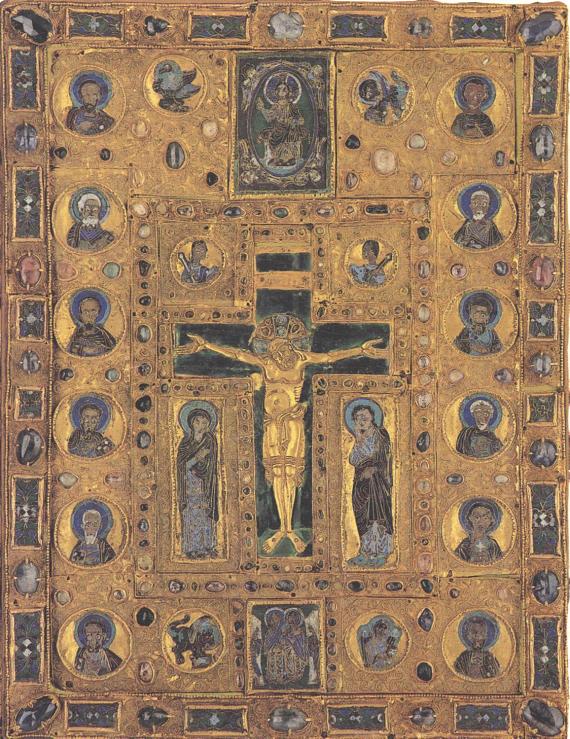Dictionary


Bibliography
The term bibliography derives from Greek "biblíon" [= book] and "graphein" [= to write]; it means literally describing books. The term has, however, over time, changed in meaning more than once. Bibliography used to mean the scientific description of books in the historical sense. Nowadays it encompasses all aspects of this branch of knowledge, each designated accordingly. Bibliography denotes in German usage, on the one hand, the theory of making lists of books and writings, the history and process of drawing up of such lists and their transmission as well as their typology, etc. On the other hand, such lists are themselves known as bibliographies, meaning reading lists. Drawing up a bibliography is in itself an activity whereas consulting a bibliography represents the passive use of one. Drawing up bibliographies is nowadays a science in itself, an indispensable discipline that serves all others by ordering their intellectual material and providing complete surveys of the literature on a particular subject. In English usage, bibliography as a science deals with analytical or critical bibliography, descriptive bibliography, textual (which can include textual criticism as well as empirical study of paper, ink, script form, etc, in manuscripts and, in printed books, what the printer did to the manuscript text, typography, etc), enumerative or systematic bibliography as well as the drawing up of primary and secondary sources in reading lists, which may or may not be annotated. In Greco-Roman antiquity the term was applied to the manual activity of writing or copying books and in the Middle ages it even meant in some cases the actual composition of the book (manuscript) content. From the 17th century the meaning of the term changed from the practical to the theoretical side and tended to represent the writing of books and exhaustive description of books. This usage of the term was ushered in with G. Naudé's "Bibliographia politica" (1633). L. J. de Saint Charles was the first to present two lists of books under the heading of bibliography ("B. gallica universalis": 1644-54; "B. parisiana": 1645-51). Terms such as catalogue, dictionary, index, thesaurus, repertorium, manual, etc, are sometimes used as synonymous with bibliography. The general epistemology of the 18th century widened the scope of the terminology used in the study of books [Latin: "notitia librorum"].
The term bibliography derives from Greek "biblíon" [= book] and "graphein" [= to write]; it means literally describing books. The term has, however, over time, changed in meaning more than once. Bibliography used to mean the scientific description of books in the historical sense. Nowadays it encompasses all aspects of this branch of knowledge, each designated accordingly. Bibliography denotes in German usage, on the one hand, the theory of making lists of books and writings, the history and process of drawing up of such lists and their transmission as well as their typology, etc. On the other hand, such lists are themselves known as bibliographies, meaning reading lists. Drawing up a bibliography is in itself an activity whereas consulting a bibliography represents the passive use of one. Drawing up bibliographies is nowadays a science in itself, an indispensable discipline that serves all others by ordering their intellectual material and providing complete surveys of the literature on a particular subject. In English usage, bibliography as a science deals with analytical or critical bibliography, descriptive bibliography, textual (which can include textual criticism as well as empirical study of paper, ink, script form, etc, in manuscripts and, in printed books, what the printer did to the manuscript text, typography, etc), enumerative or systematic bibliography as well as the drawing up of primary and secondary sources in reading lists, which may or may not be annotated. In Greco-Roman antiquity the term was applied to the manual activity of writing or copying books and in the Middle ages it even meant in some cases the actual composition of the book (manuscript) content. From the 17th century the meaning of the term changed from the practical to the theoretical side and tended to represent the writing of books and exhaustive description of books. This usage of the term was ushered in with G. Naudé's "Bibliographia politica" (1633). L. J. de Saint Charles was the first to present two lists of books under the heading of bibliography ("B. gallica universalis": 1644-54; "B. parisiana": 1645-51). Terms such as catalogue, dictionary, index, thesaurus, repertorium, manual, etc, are sometimes used as synonymous with bibliography. The general epistemology of the 18th century widened the scope of the terminology used in the study of books [Latin: "notitia librorum"].
Offers
Headquarters
Joseph-Wild-Str. 18
81829 Munich
Phone: +49 89 55 244-0
Fax: +49 89 55 244-177
info@kettererkunst.de
Louisa von Saucken / Undine Schleifer
Holstenwall 5
20355 Hamburg
Phone: +49 40 37 49 61-0
Fax: +49 40 37 49 61-66
infohamburg@kettererkunst.de
Dr. Simone Wiechers / Nane Schlage
Fasanenstr. 70
10719 Berlin
Phone: +49 30 88 67 53-63
Fax: +49 30 88 67 56-43
infoberlin@kettererkunst.de
Cordula Lichtenberg
Gertrudenstraße 24-28
50667 Cologne
Phone: +49 221 510 908-15
infokoeln@kettererkunst.de
Hessen
Rhineland-Palatinate
Miriam Heß
Phone: +49 62 21 58 80-038
Fax: +49 62 21 58 80-595
infoheidelberg@kettererkunst.de
We will inform you in time.




